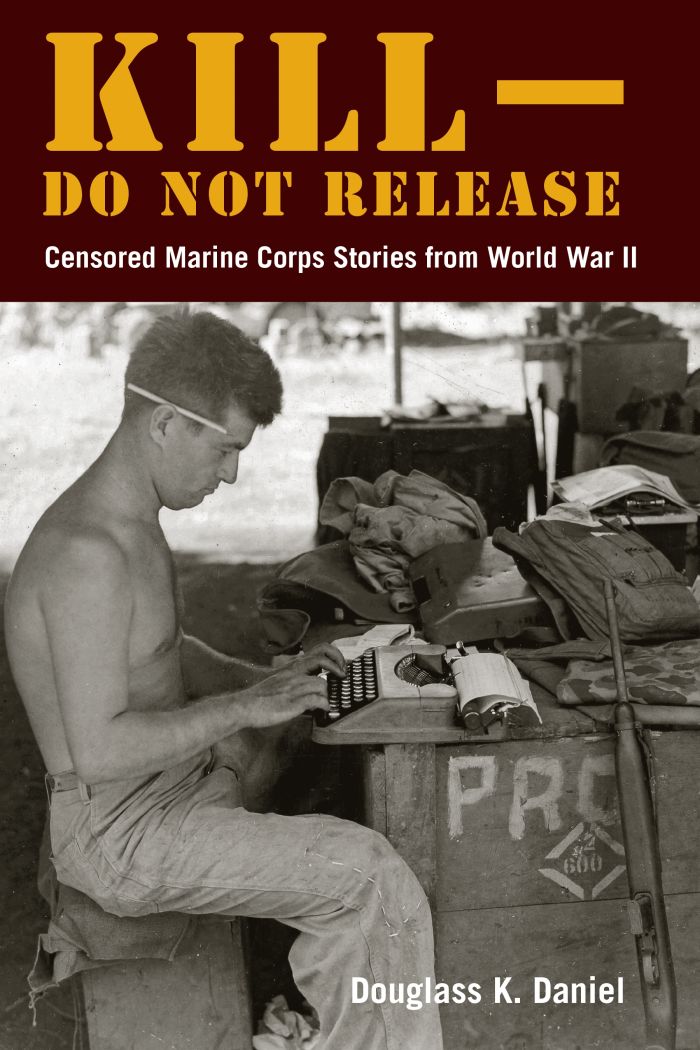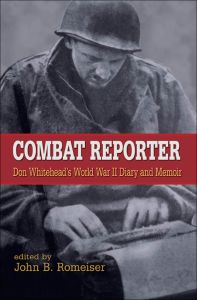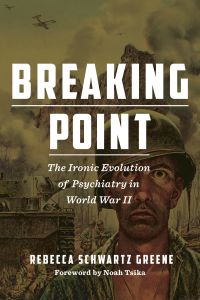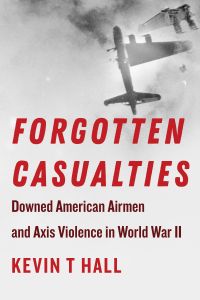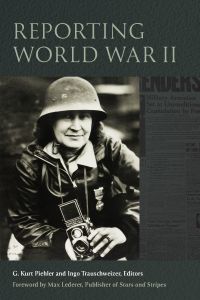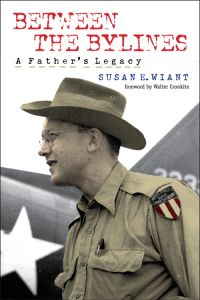Kill–Do Not Release
Censored Marine Corps Stories from World War II

This book can be opened with

“Fighter-Writer” reports from major battles in the Pacific highlight what America’s Marines endured in World War II
Douglass K. Daniel presents a fascinating trove of previously classified material withheld from the public because of government and public relations concerns at the time, including tactical details that could inadvertently aid the enemy, battlefield gore that could disturb readers, and the gamut of issues of taste. Navy censors in the field and editors at Marine Corps headquarters in Washington were also on alert for any material that could negatively affect the Corps itself or the overall war effort. Soul-searching stories that questioned the nature of war were rejected lest they sow doubt stateside about the cause for which so many lives were being lost.
Behind the bylines was a new breed of storytellers. Considered “fighter-writers,” Marine combat correspondents, or CCs, carried typewriters as well as weapons. The Marine Corps Division of Public Relations recruited them from America’s newsrooms to join the fight that stretched from Guadalcanal and the bloody assault on Tarawa to the black sands of Iwo Jima and the dense jungles of Okinawa. Their approved work appeared in civilian newspapers, magazines, and other national and local media.
This collection also highlights the unique efforts of the CCs and the public relations officers who commanded them. While they were assigned to report and write, they were Marines first. They eagerly put aside their notebooks to take up arms against the enemy as needed. Many were wounded in battle, and more than a dozen were killed, giving their lives to get the story behind the most significant conflict in human history.
Douglass K. Daniel’s book offers readers a fascinating examination of World War II journalism. While there have been studies about the individual work of civilian reporters, there have been none documenting the efforts of combat correspondents drawn from the military. Daniel has plugged a gap in journalism studies with his work, especially because the dispatches he uses were ‘deemed unfit for the eyes of the American public at the time they were written’—Ray E. Boomhower, biographer of Ernie Pyle, Robert L. Sherrod, and Richard Tregaskis
This is an excellent volume. Combining a fascinating trove of stories written by Marine combat correspondents, with elegantly written essays that situate their journalism in the bigger picture, Douglass Daniel has produced a must-read book for anyone interested in either World War II or the US Marine Corps.—Steven Casey, author of War Beat Pacific: The American Media at War against Japan
Introduction | 1
1 A Dangerous Publicity Campaign | 7
2 In the Jungles of Guadalcanal | 23
3 Somewhere in the South Pacific | 45
4 Four Bloody Days on Tarawa | 71
5 From New Britain to the Marshalls | 97
6 Sweeping the Marianas: Saipan, Guam, and Tinian | 122
7 Payback at Peleliu | 149
8 Invisible Heroes: Black Marines and Sailors in the Pacific | 161
9 Thirty-Six Days on Iwo Jima | 182
10 Okinawa and Imperial Japan's Last Stand | 202
11 Life in the Marine Corps | 219
Epilogue | 239
Acknowledgments | 249
Notes | 251
Bibliography | 275
Index | 279
Photos follow page 148

